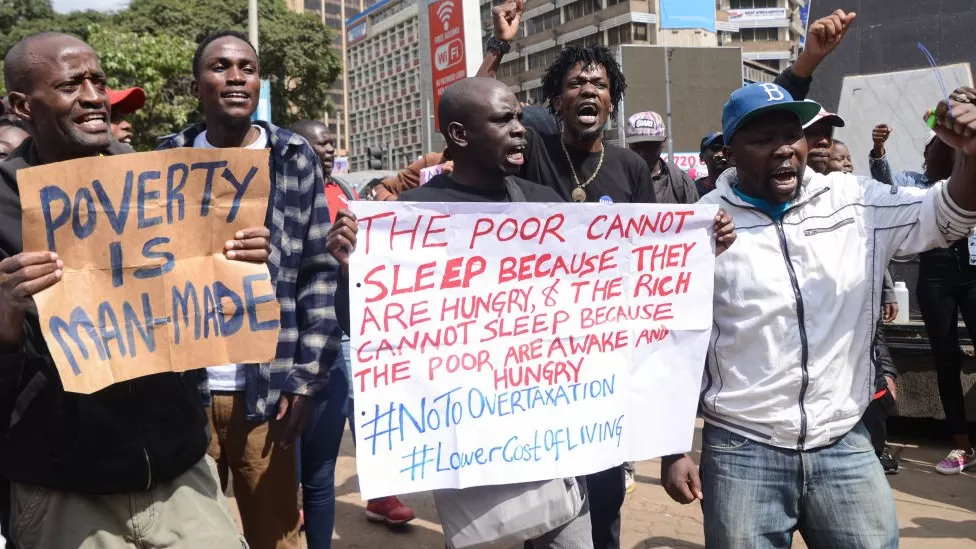Kenyan government has introduced a fee for the issuance of national identity cards, birth and death certificates among others amidst increasing cost-of-living crisis in the East African country.
This has also sparked a widespread outcry among Kenyans, especially on social media who denounce the policy as anti-people, negating the promise of President William Ruto who came into power last year, campaigning on the manifesto of reducing living cost.
Before the introduction of the policy, Kenyans from 18 years and above could obtain their national ID cards at no cost, but new applicants are now required to pay a fee of 1,000 Kenyan shillings ($6; £5).
Those wishing to replace lost or damaged national ID card are also required to pay 2,000 shillings, a 20-fold increase from previous cost.
Other government-issued documents affected by the revised fees include, marriage certificates, work and residence permits.
Fresh applicants or those wishing to replace various categories of passports will pay more than 50% more, while the fees for obtaining birth and death certificates have increased by more than four times, reaching 200 shillings.
Marriage certificates will now cost 100,000 shillings, more than triple the previous amount, while the cost of civil weddings has risen 10-fold to 50,000 shillings.
The government has also increased the cost of acquiring citizenship or residence, including doubling the amount payable for children born to Kenyan citizens abroad to acquire permanent residence in Kenya to one million shillings.
The hikes are the latest in a series of revenue-generating measures introduced by Ruto’s administration since he came to power.
Many Kenyans have complained about paying higher for government services that they believe are already funded by their taxes.
The substantial and abrupt increases have raised concerns that they could create barriers for poorer Kenyans to access government services or participate in processes that require government documents, such as voting and marriage.
“Jokes aside, paying for an ID excludes a group of people from voter registration hence a huge hindrance to the realization of the right to vote,” one Kenyan said on the social platform X.
According to the World Bank, 27% of Kenyans live under the poverty line, spending less than $2.15 a day.
Some politicians have also criticised the price hikes, while some government officials have disputed them.
Roseline Njogu, who heads the department of diaspora affairs, said the price hike in the permanent residence fees for children of Kenyan citizens born abroad “were entered in error” and will be rectified.
Since coming to power in September last year, President Ruto’s government has increased taxes on necessities like fuel, as well as charges on several services offered by the government, such as entry to national parks.




![Truck Driver Kills 52 In Horrifying Crash [PICTURES] Truck Driver Kills 52 In Horrifying Crash](https://abntv.com.ng/wp-content/uploads/2023/07/The-mangled-remains-of-a-car-involved-in-the-fatal-crash-which-occurred-on-Friday-night-1-238x178.jpg)





